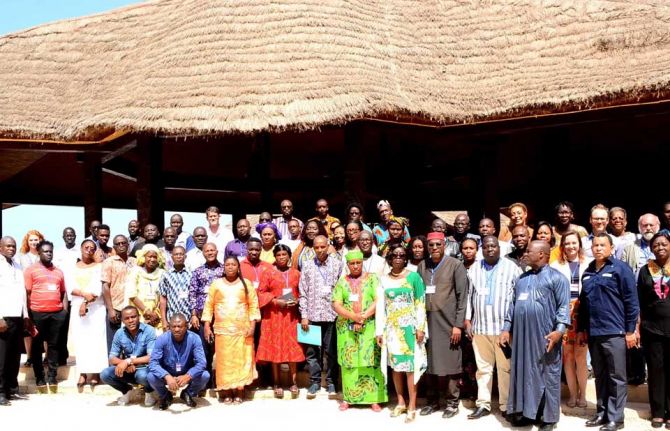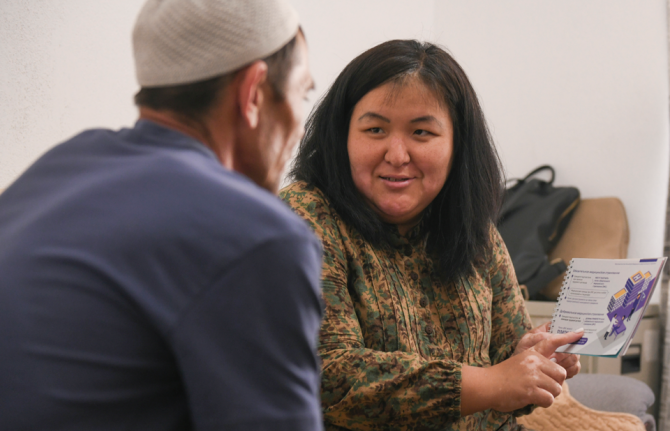

Feature Story
Civil society builds a coalition to accelerate results in western and central Africa
15 May 2018
15 May 2018 15 May 2018Western and central Africa has faced many challenges, from conflicts and humanitarian crises to political instability and the devastating Ebola epidemics. At a time when the global response to HIV is accelerating, millions of people in the region are being left behind. Globally in 2016, 70% of all people living with HIV knew their HIV status, 53% of all people living with HIV were accessing treatment and 44% of all people living with HIV were virally suppressed. In contrast, the western and central African region lags behind, achieving only 42%, 35% and 25%, respectively, in 2016. The gap is considerable in that region: 4.0 million people living with HIV are not receiving treatment and 310 000 adults and children died from AIDS-related illnesses in 2016.
In order to share experiences, challenges and information on successful programmes, representatives of civil society organizations involved in the AIDS responses across western and central Africa gathered in Somone, Senegal, from 7 to 10 May. Technical and financial partners also took part in the discussions.
“Eighty civil society leaders from 17 countries in western and central Africa are eager to take up a central role in the implementation of the western and central Africa catch-up plan as actors of social change and political transformation,” said Patrick Brenny, the Director of the UNAIDS Regional Support Team for Western and Central Africa.
The participants developed innovative solutions to overcome barriers to national AIDS responses and to improve the unity and collaboration of local civil society organizations. They examined progress and setbacks in the implementation of national catch-up plans and shared experiences of violations of human rights related to HIV status and stigma and discrimination.
Consensus emerged that efforts should be focused on bridging the gaps in paediatric care and treatment, in particular in the context of the lack of social protection schemes for orphans and other children made vulnerable by AIDS. The region has seen a worrying trend in increasing mortality among adolescents living with HIV. Lack of access to comprehensive sexuality education, a high age of consent to access sexual and reproductive health information, services and treatment without parental agreement and taboos around youth sexuality were raised as some of the obstacles to be overcome.
Successful innovations and programmes with key populations and other vulnerable groups were shared. There was wide consensus about the role of community health systems to reach remote populations and vulnerable groups, while protecting confidentiality.
“It is high time that we increase investments to guarantee access to antiretroviral medicines, have better paediatric medicines, implement family testing approaches and scale up social protection programmes to protect all vulnerable mothers and children,” said Christine Kafando, Coordinator of the Hope for Tomorrow Association in Burkina Faso.
The participants will build on the progress made by organizing national dialogues around the catch-up plan for the region. The development of a regional platform for advocacy and technical support will be further discussed to enable stronger and more resilient civil society to play roles in national AIDS responses and other global health challenges.
“Each stakeholder gathered here plays a central role in their respective national AIDS response. Each brings invaluable experience to the table. We need to build on this energy to renew our commitment to work together for much needed breakthroughs for the region to bring HIV under control,” said Daouda Diouf, the Executive Director of ENDA Santé in Senegal.



